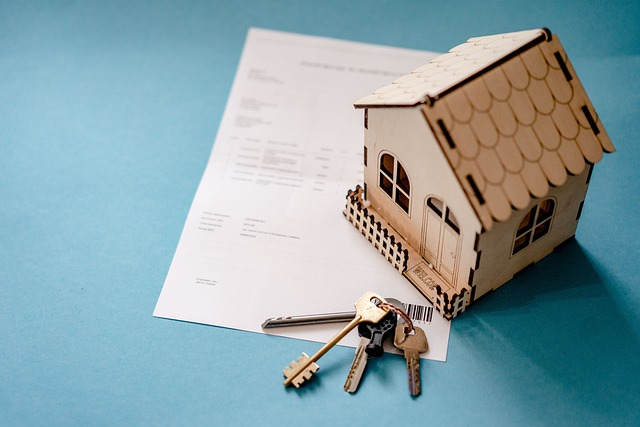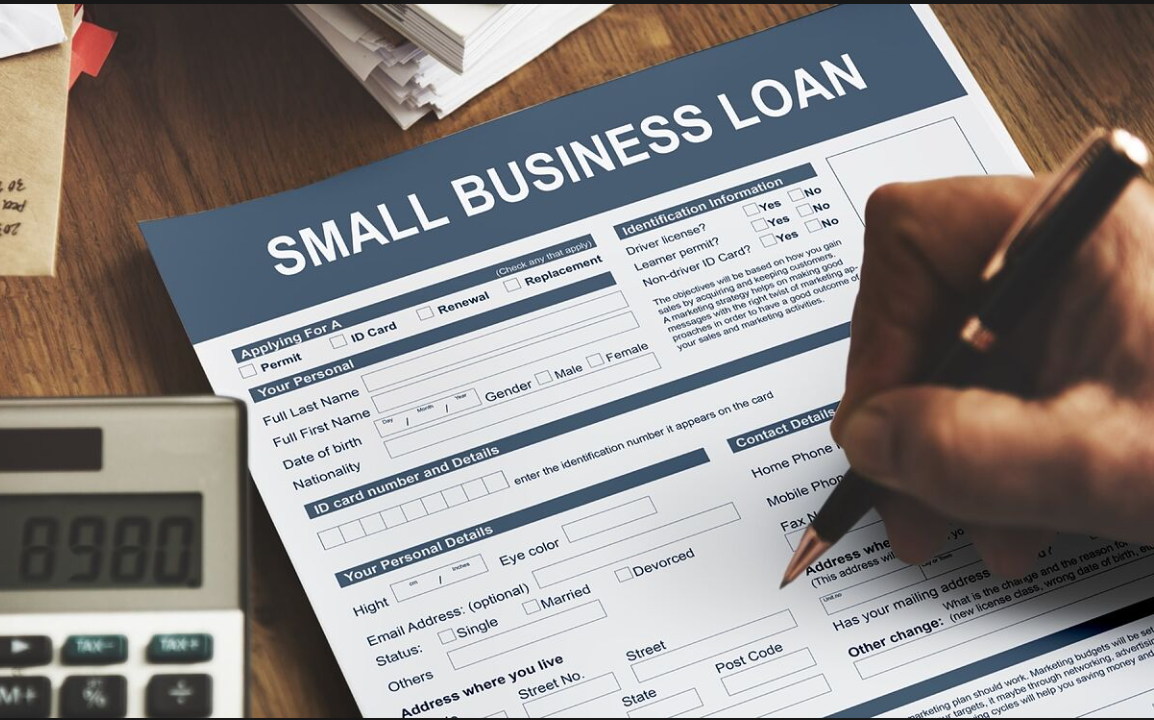Being self-employed has numerous advantages when it comes to freedom, flexibility, and control over your own business. However, when it comes to obtaining financing, self-employed individuals often face unique challenges.

Generally speaking, and as mortgage brokers and financial advisors will inform you about, full doc lenders typically require extensive documentation and proof of income, which can be difficult for self-employed professionals to provide.
Fortunately, there is a solution: Low Doc lenders. In this article, we will explore the concept of Low Doc lending and how it can benefit self-employed individuals seeking hassle-free financing options.
What are Low Doc Loans?
Low doc loans, short for low documentation loans, are designed for borrowers who can’t provide the usual proof of income documents.

These low doc home loans are particularly beneficial for self-employed individuals, freelancers, and small business owners who might not have regular income flows or detailed tax returns.
What Are Low Doc Lenders?
Low Doc lenders are financial institutions that offer/specialise in loans to self-employed individuals with minimal documentation requirements.
These lenders understand the challenges faced by self-employed professionals when it comes to providing traditional proof of income and offer alternative home/investment loan options.

Why Choose a Low Doc Loan?
Generally speaking, the main advantage of a low doc loan is its simplicity and accessibility. A traditional home loan application can be a challenging process, especially for those with non-traditional income sources.
An example of this will be where a traditional lender will require you to show two years of tax returns and statements.
There are many reasons why the last two years may not paint an accurate picture of where your business is at today.
E.g., maybe year 1 was bad but now year 2 is great and your existing year is even better. Most lenders will take an average of the last two years income tax returns and this can affect your borrowing capacity significantly.

With low doc loans, you can get access to the funds you need with less hassle and paperwork. It offers a chance to leverage your income and assets without the red tape typically involved in a conventional full doc home loan.

How Do Low Doc home loans work?
Low doc loans are designed to streamline the loan application process for business owners/self- employed borrowers.
Instead of requiring extensive financial documentation like a typical full doc home loan, Low Doc lenders focus on the borrower’s self-declared income and business activity statements.
These low doc home loans often require a higher deposit or interest rate to compensate for the reduced documentation. They may or may not have significant fees known as risk fees applied depending on which low doc lender

The Benefits of Low Doc loan Lenders
Simplified Application Process:
Low Doc loan lenders offer a streamlined application process, saving business owners individuals time and effort.
Flexible Income Documentation:
Low Doc lenders understand the irregular income patterns of self-employed professionals and accept alternative income verification methods.
Higher Approval Rates:
Self-employed individuals who may have difficulty obtaining loans from traditional lenders can benefit from the higher approval rates offered by non bank lenders.
Who Can Benefit from Low Doc Loans?
Self-Employed Professionals:
Entrepreneurs, freelancers, contractors, and small business owners can benefit from a Low Doc home loan.
Individuals with Limited Financial History:
Those who have recently started their self-employment journey and have limited financial documentation can also benefit from Low Doc home loans.
There are some lenders that specialise in providing loans to borrowers who have been running their business for less than two years.
The Documentation Required for Low Doc Loans

While low Doc home loans have reduced documentation requirements, borrowers still need to provide some key documents.
Typically, a non bank lender will ask for self-declared income statements, business activity statements, and bank statements to assess the borrower’s financial position.
While the documentation required for a low doc loan is minimal compared to a traditional home loan (full doc loan), some paperwork is still needed.
This typically includes a signed income declaration, proof of your ABN (Australian Business Number) and GST registration, and possibly a few months’ worth of bank statements.
The specifics will vary depending on the lender’s requirements.

Are There Any Risks Involved with low doc home loans?
As with any financial decision, it’s crucial to consider the potential risks of a low doc loan.
Low doc loans often come with higher interest rates than conventional loans due to the perceived increased risk to the lender.
It’s also worth noting that if you underestimate your income on your loan application and can’t make the repayments, you could potentially face financial hardship, however these lenders have provisions and policy in place to assist you through this period.
Understanding the Loan Terms

Interest Rates:
Low Doc loans may have slightly higher interest rates compared to traditional loans due to the increased risk associated with reduced documentation.
Loan Amount and Repayment Period:
The loan amount and repayment period offered by Low Doc lenders may vary based on the borrower’s financial situation and the lender’s policies.

Building a Strong Loan Application:
We always recommend that you seek professional advice when applying for a low doc loan. Reason is that these loan have stringent requirements even though they require less documentation. Seek out the services of the best mortgage broker you can find
Maintain Accurate Financial Records:
Keep detailed records of your income, expenses, and tax returns to strengthen your loan application.
Improve Credit Score:
Maintaining a good credit score is crucial for loan approval. Paying bills on time, reducing debts, and minimising credit applications can help improve your credit score.
Common Misconceptions About Low Doc Lending
High Risk:
Some people believe that Low Doc home loans are riskier for lenders due to the typical business owners that use these types of financial products.

However, a non bank lender generally will mitigate this risk by assessing other factors such as loan-to-value ratio, past creditworthiness and the overall health of the business.
This is generally graded by either looking at either the income tax returns or the profit and loss statement of the respective business.

Limited Loan Options:
While Low Doc loans may have different terms and conditions, borrowers still have access to various loan products, including home loans and business loans.
How to Choose the Right Low Doc Lender
Research and Compare:
Take the time to research and compare different Low Doc home loan lenders, considering factors such as interest rates, loan terms, and customer reviews.

Seek Professional Advice on alt doc home loans:
Consult with a mortgage broker or financial advisor who specialises in Low Doc lending to get expert guidance and find the best lender for your needs.
Assessing Good Customer Service:
Consider the responsiveness and support provided by the lender’s customer service team, as it can greatly impact your experience throughout the loan process. Have a look online for customer reviews as this will give you an insight into what you can expect.

Tips for a Successful Low Doc Home Loan Application
Be Transparent:
Provide accurate and complete information on your loan application, including your self-declared income and business activity statements.
Prepare Documentation:
While Low Doc loans have reduced documentation requirements, ensure that you have the necessary documents readily available to expedite the application process.
Demonstrate Stability:
Highlight the stability and profitability of your business to in still confidence in the lender regarding your ability to repay the loan.
Is a Low Doc Home Loan Right for You?
A Low Doc Home loan can be an excellent option for non-traditional income earners who need a loan but struggle to provide the necessary documentation.
However, as with any financial decision, it’s essential to do your research, compare options, and consult with a financial advisor to ensure it’s the best fit for your circumstances.
They offer accessibility, simplicity, and flexibility, making them a viable option for many. However, as with all financial decisions, one must balance the benefits with the potential risks.
Summary
Low Doc lenders offer a viable financing option for self-employed individuals who face challenges with traditional lenders’ extensive documentation requirements.
These lenders simplify the low doc home loan application process by focusing on self-declared income and business activity statements.
A Low Doc Home loan provide benefits such as a streamlined application process, flexible income documentation, and higher approval rates.
Self-employed professionals and those with limited financial history can benefit from these loans.
While low doc loans may have slightly higher interest rates, borrowers can build a strong application by maintaining accurate financial records and improving their credit score.
It is important to choose the right Low Doc lender by conducting research, seeking professional advice, and assessing customer service.
Transparently providing information and preparing necessary documentation can increase the chances of a successful loan application.
FAQs
What is the difference between Low Doc lenders and traditional full doc loan providers ?
Traditional lenders require extensive financial documentation, while Low Doc lenders focus on self-declared income and business activity statements, making the application process easier for self-employed individuals.
Can I get a Low Doc home loan if I have recently started my business?
Yes, there are lenders that can provide a Low Doc home loan that is suitable for individuals with limited financial history, including those who have recently started their self-employment journey.
Does a Low Doc loan have higher interest rates?

Yes, a Low Doc home loan may have slightly higher depending on the low doc lender. Low doc loan interest rates, will depend on a varied number of compared to traditional loans due to the reduced documentation requirements.
How can I improve my chances of loan approval for a low doc loan?

We would recommend that you maintain accurate financial records, bank statements, check your credit score, and demonstrating the stability and profitability of your business.
This will increase your chances of an application approval for your low doc home loan. Lending criteria does vary depending on the lender your choose so make sure to check to see that you are meeting their requirements.
Are Low Doc home loans only for home financing?

No, Low Doc home loans are available for various purposes, including home loans (both for investment property or owner occupier), business loans, and other types of financing.
FAQs for Low Doc Home Loan
A Low Doc (Low Documentation) home loan is designed for self-employed individuals or small business owners who may not have the traditional financial documentation required for a standard home loan.
Self-employed individuals, freelancers, contractors, and small business owners who may have irregular income or lack the traditional financial documents like tax returns and pay slips can benefit from a Low Doc home loan.
Low Doc home loans usually require alternative documentation such as Business Activity Statements (BAS), accountant’s declarations, bank statements, and a self-declaration of income.
Interest rates on Low Doc home loans are generally higher than those on standard home loans due to the increased risk to lenders. However, rates can vary depending on the lender and the borrower’s financial situation.
Yes, Low Doc home loans are available for purchasing both residential and investment properties. Borrowers should check with lenders for specific terms and conditions.
Yes, refinancing with a Low Doc loan is possible, especially if your financial situation or documentation has changed since you took out the original loan.
Eligibility criteria typically include being self-employed for at least 12 months, having a good credit history, and providing alternative documentation to verify income and financial stability.
Downsides can include higher interest rates, larger deposits, and stricter lending criteria. Borrowers may also face more limited loan options compared to standard home loans
Lenders usually require a larger deposit for Low Doc home loans, often around 20-30% of the property’s value, to offset the increased risk.
It may be more challenging to secure a Low Doc home loan with a poor credit history. Some lenders specialize in lending to those with credit issues, but terms and conditions may be less favorable.
To apply for a Low Doc home loan, contact a mortgage broker or lender specializing in these loans. Gather the necessary documentation, such as BAS, bank statements, and an accountant’s declaration, and complete the lender’s application process.
Consider the higher interest rates, larger deposit requirements, and the need for alternative documentation. Evaluate your financial situation and compare different lenders to find the best terms for your needs.
Yes, many lenders, including major banks and specialized non-bank lenders, offer Low Doc home loans. It’s important to compare their terms, interest rates, and eligibility criteria.
Yes, a mortgage broker can help you find and compare Low Doc home loans, assess your eligibility, and guide you through the application process to secure the best possible deal.

TORI DUNLAP
Tori is a finance blogger and researcher at OurTop10.com.au, where she enjoys helping people navigate the world of finance and money. Through her insightful articles and comprehensive research, she empowers readers with valuable knowledge on budgeting, saving, investing, and retirement planning.
Tori’s approachable and empathetic style makes complex financial concepts relatable and easier to understand, She aims to foster a sense of community and leave a lasting, positive impact on her audience’s financial well-being.
